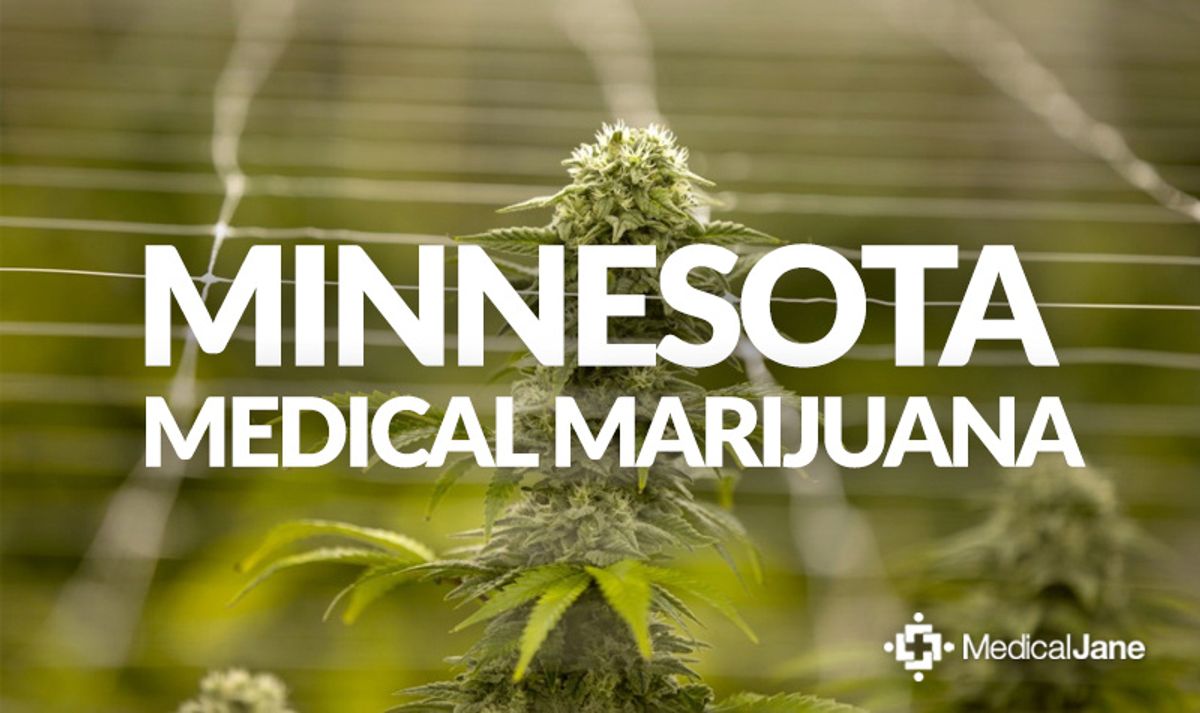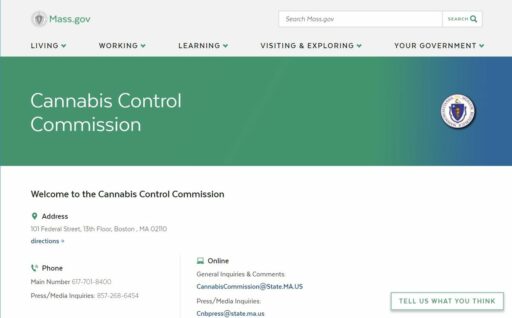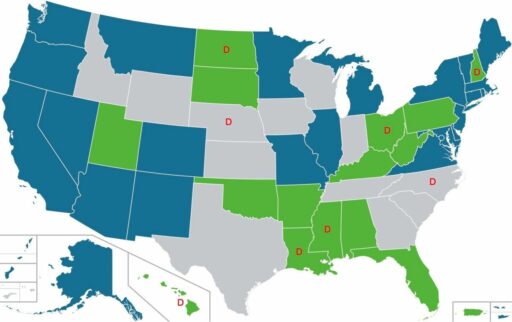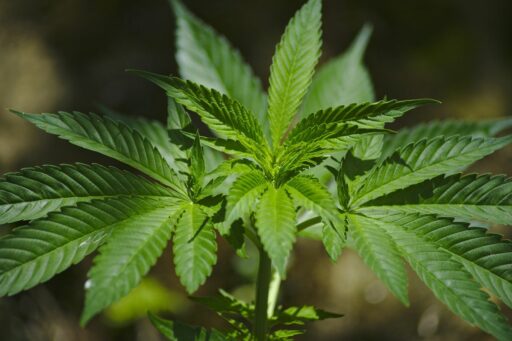In recent years, Nevada has experienced a dynamic shift in its approach to marijuana laws, reflecting a broader trend towards legalization and regulation of cannabis. Since the initial legalization of medical cannabis, the state has seen a progressive evolution of its marijuana laws, culminating in significant changes in 2020. These amendments have not only altered the legal landscape for consumers and businesses but have also had wide-reaching implications for the state’s economy, public health, and tourism sectors.
Key Takeaways
- Nevada has significantly evolved its cannabis regulations since legalization, expanding from medical to recreational use and introducing stricter testing standards.
- Economic benefits from these changes include increased tax revenue, job creation, and a boost in tourism, contributing to the state’s financial health.
- Scientific research plays a crucial role in shaping regulations, ensuring public health and safety while adapting to new findings about cannabis.
- The state has broadened the scope of permissible cannabis activities, including the rise of social consumption lounges and adjustments for consumer access.
- Nevada maintains mechanisms for regular updates to cannabis laws, responding to industry and consumer feedback to ensure the market’s success.
The Evolution of Cannabis Legalization in Nevada

From Medical to Recreational Use: A Timeline
The journey of cannabis legalization in Nevada has been marked by significant milestones. Medical cannabis was legalized in 2000, but initially, the access was quite restricted with only a few dispensaries available. Over time, the landscape has changed dramatically, paving the way for recreational use.
Following the legalization of medical cannabis, Nevada continued to progress towards a more inclusive approach to cannabis use:
- 2013: The state legislature passed a bill to establish a regulated system of dispensaries.
- 2016: Voters approved Question 2, legalizing recreational marijuana for adults 21 and older.
- 2017: Recreational sales began, with existing medical dispensaries permitted to sell to recreational consumers.
The expansion of cannabis access has not only catered to recreational users but also improved the availability of medical cannabis, reflecting a broader acceptance and integration of cannabis into Nevada’s social fabric.
The increase in licensed dispensaries has significantly improved access for medical patients, aligning with the state’s commitment to public health and individual freedom.
The Expansion of Licensing for Dispensaries and Cultivation
In response to the burgeoning demand for cannabis products, Nevada has significantly increased the number of licenses for dispensaries and cultivation facilities. This strategic move, initiated in 2018, aimed to address supply shortages and support the growing industry. The state doubled the available licenses, fostering a more competitive market and ensuring a steady supply of cannabis to consumers.
The licensing expansion also included a focus on social equity. Assembly Bill 132, effective July 2019, mandated the Department of Taxation to fast-track licenses for businesses owned by low-income individuals or those from communities disproportionately affected by the War on Drugs. This legislative action underscores Nevada’s commitment to rectifying past injustices while shaping a diverse and inclusive cannabis industry.
The licensing process in Nevada has evolved to accommodate the dynamic landscape of the cannabis market, reflecting a balance between regulatory oversight and industry growth.
Here is a summary of the key changes to licensing:
- Doubling of dispensary and cultivation licenses
- Introduction of social equity provisions
- Stricter testing standards for product safety
- Expedited licensing for eligible entities
Introduction of Stricter Testing Standards
In 2020, Nevada took significant steps to enhance the safety and quality of cannabis products through the introduction of stricter testing standards. Mandatory Testing now plays a pivotal role in the state’s regulatory framework, with the Nevada Department of Taxation enforcing rigorous checks for potency and contaminants. This measure is crucial for consumer protection.
The state mandates that all cannabis testing be conducted by independent, third-party laboratories. These labs must be accredited by the International Organization for Standardization (ISO), ensuring that the testing results are both unbiased and accurate.
The continuous evolution of testing regulations reflects Nevada’s commitment to public health. In recent times, additional tests for heavy metals have been mandated, showcasing the state’s proactive approach to emerging safety concerns.
The collaboration between the Department of Taxation and industry experts has been instrumental in refining these standards. Together, they work to align Nevada’s cannabis testing protocols with industry best practices, thereby maintaining a high benchmark for product safety.
The Economic Impact of Regulatory Changes

Boost in Tax Revenue and State Economy
The regulatory changes in Nevada’s marijuana laws have led to a significant increase in tax revenue, bolstering the state’s economy. This influx of funds has been instrumental in creating new job opportunities and enhancing tourism, contributing to a more robust economic landscape.
The introduction of a retail excise tax of 10% on recreational cannabis sales, coupled with a 15% wholesale tax on cultivators, has proven to be a lucrative decision. In the first year following legalization, these taxes alone generated almost $70 million in revenue for Nevada.
The revenue potential from cannabis is substantial, not only for Nevada but on a national scale. States have collected nearly $3 billion in marijuana revenues, and nationwide legalization could amplify this figure exponentially.
Furthermore, the adoption of an electronic seed-to-sale tracking system has streamlined tax collection and compliance, ensuring a more accountable and efficient industry. The evolving tax structure continues to support the thriving cannabis market in Nevada, setting a precedent for economic growth through regulatory adaptation.
Creation of New Job Opportunities
The legalization of cannabis in Nevada has not only altered the legal landscape but also ignited a surge in employment across the state. With the expansion of dispensaries and cultivation centers, a multitude of job roles have emerged, ranging from agricultural positions in cultivation to retail jobs in dispensaries. This growth has necessitated a robust workforce to support the burgeoning industry.
- Agricultural technicians
- Budtenders
- Compliance officers
- Dispensary managers
The positive shift in tax structure has further bolstered the industry’s competitiveness, leading to an increase in business revenue and, consequently, job creation. This economic upswing has been instrumental in fostering a dynamic job market within the state.
The integration of new businesses into the cannabis market has required adherence to stringent state laws and regulations. Ensuring compliance and fair licensing practices remains a critical challenge as the industry continues to evolve.
Enhancement of Tourism Through Cannabis Legalization
The legalization of cannabis in Nevada has not only reshaped the legal and economic landscape but has also significantly enhanced tourism. Tourists now have access to a new array of experiences, including the opportunity to visit dispensaries and social consumption lounges. These attractions add a unique aspect to Nevada’s already vibrant tourism sector, drawing visitors who are interested in the cannabis culture and industry.
The introduction of on-site consumption lounges has been particularly impactful. These establishments provide a safe and legal environment for tourists to enjoy cannabis products, addressing a previously unmet need for visitors. The state’s adaptation to tourist demands reflects a broader trend of integrating cannabis into the tourism experience, further solidifying Nevada’s position as a forward-thinking destination.
The synergy between cannabis legalization and tourism has created a complementary relationship that benefits the state’s economy and provides a model for other regions considering similar legislative changes.
The Role of Science in Shaping Cannabis Policies

Incorporating Research into Regulation
The evolving scientific understanding of cannabis is a cornerstone in the development of Nevada’s regulatory frameworks. Research findings are pivotal in informing policymakers, leading to regulations that balance public safety with the growth of the cannabis industry.
The integration of scientific research into regulation ensures that policies are not static but evolve with new discoveries, addressing concerns such as underage usage and impaired driving.
- Ongoing studies on cannabis inform the development of rules regarding:
- Public health and safety
- Licensing procedures
- Equitable system for awarding licenses
With the industry’s rapid growth, it is crucial to maintain a system that is both fair and adaptable to scientific advancements. This approach helps avoid monopolization and ensures compliance with state laws, ultimately contributing to a responsible and thriving cannabis market.
Addressing Public Health and Safety Concerns
In the wake of cannabis legalization, Nevada has placed a strong emphasis on addressing public health and safety concerns. This focus ensures that the integration of cannabis into society does not adversely affect the well-being of its citizens.
The establishment of subcommittees dedicated to public health and safety reflects the state’s commitment to a responsible cannabis market. These entities are tasked with reviewing and recommending policies that protect consumers and the broader community.
The state has organized numerous meetings to discuss public health implications, with agendas that include topics such as consumption lounge recommendations and the impact of cannabis on social equity, diversity, and inclusion. Below is a summary of recent subcommittee meetings focused on public health:
- Subcommittee on Public Health Meeting (10.19.21, 9.29.21, 9.20.21, 8.25.21)
- Subcommittee on Social Equity, Diversity, and Inclusion Meeting (10.18.21, 9.27.21)
- Subcommittee on Public Safety Meeting (10.12.21)
These meetings are not only a platform for discussion but also serve as a mechanism for the public to voice their opinions and concerns, ensuring that the regulatory framework evolves with the needs and safety of the community in mind.
Adapting to New Scientific Discoveries
The evolving scientific understanding of cannabis is pivotal in shaping Nevada’s regulatory frameworks. New research findings continually inform and refine policies, ensuring they remain relevant and effective. As discoveries emerge, regulations adapt to reflect the latest knowledge on cannabis’s effects, uses, and safety profiles.
- Ongoing research on cannabis potency and consumption methods.
- Development of advanced testing protocols for product safety.
- Implementation of evidence-based guidelines for medical and recreational use.
The integration of scientific discoveries into regulation is crucial for balancing innovation with public health and safety. This approach allows Nevada to stay at the forefront of cannabis policy development, fostering a dynamic and responsible industry.
The Broadening Scope of Permissible Cannabis Activities

Regulatory Adjustments for Consumer Access
In response to evolving consumer needs, Nevada has made significant regulatory adjustments to enhance cannabis access. These changes are designed to streamline the process for consumers, ensuring a more efficient and user-friendly experience.
- Simplification of purchase procedures
- Expansion of permissible purchase limits
- Introduction of new consumption options
These regulatory updates reflect a commitment to adapting to the preferences and requirements of cannabis consumers in Nevada.
The state has also sought public input on proposed changes, demonstrating a transparent approach to regulation. For instance, the solicitation of input on regulations during public events has been a key part of the process, ensuring that consumer voices are heard and considered.
The Rise of Social Consumption Lounges
The advent of social consumption lounges in Nevada marks a significant shift in cannabis consumption culture. These lounges offer a communal space where individuals can enjoy cannabis products legally and socially. The state’s approach to integrating these lounges into the existing cannabis market has been met with anticipation and debate.
Nevada’s regulatory body has put forth specific guidelines to govern the operation of these lounges, ensuring they adhere to public health and safety standards. The initial approval of consumption lounge licenses has set the stage for a new era in the state’s cannabis industry, with the first batch of licensees already making headway.
The development of cannabis consumption lounges is seen as the new frontier for Nevada’s cannabis industry, with potential to enhance the user experience and contribute to economic growth.
Here is a snapshot of the current status of consumption lounge licenses in Nevada:
- Approved Lounges: 19
- Retail-Attached Lounges: 14
- Independent Lounges: 5
This innovative concept is expected to create a one-stop entertainment destination, combining cannabis use with food, beverages, and other entertainment options, thereby creating jobs and stimulating the economy.
Navigating the Challenges of On-Site Consumption
The introduction of on-site cannabis consumption lounges in Nevada has been a significant step forward for the industry. These lounges offer a legal space for adults to consume cannabis socially, addressing a gap in the market for tourists and residents alike. However, the implementation of these lounges comes with its own set of challenges.
Public health and safety have been at the forefront of discussions around consumption lounges. Stakeholder meetings have highlighted the need for stringent regulations to ensure that these spaces do not negatively impact the community. As a result, Nevada officials have put specific restrictions in place to govern the operation of these lounges.
The approval of the state’s first cannabis consumption lounge marks a pivotal moment in Nevada’s cannabis industry, setting a precedent for future establishments.
The following points were considered in the discussion for consumption lounge regulations:
- Ensuring compliance with public health standards
- Addressing security concerns and adherence to safety regulations
- Balancing the interests of the public with those of the cannabis industry
The successful navigation of these challenges will be crucial for the sustainability and growth of on-site consumption lounges in Nevada.
Ongoing Regulatory Review and Adaptation

Mechanisms for Regular Cannabis Law Updates
In Nevada, the process of updating cannabis regulations is systematic and involves several key mechanisms. The Nevada State Legislature plays a pivotal role, convening every two years to consider new laws and modifications to existing ones. This biennial schedule ensures that cannabis policies remain responsive to the evolving landscape of marijuana use and research.
Beyond legislative sessions, ongoing monitoring and feedback mechanisms are in place. These include newsletters and bill tracking systems that keep stakeholders informed about policy changes and proposals. For instance, Marijuana Moment tracks over a thousand cannabis-related bills, providing interactive resources for supporters.
The regular review and adaptation of cannabis laws are crucial to maintaining a legal framework that balances consumer access with public health and safety.
Here is a list of mechanisms that facilitate the regular update of cannabis regulations in Nevada:
- Biennial legislative sessions
- Newsletters and updates from advocacy groups
- Bill tracking and interactive tools for policy monitoring
- Public and industry feedback channels
Responding to Industry Needs and Consumer Feedback
The regulatory landscape in Nevada has been dynamically shaped by the voices of both the cannabis industry and consumers. Public feedback has been invaluable in shaping the regulation of cannabis, ensuring that the industry thrives while maintaining public safety and health. Key areas influenced by feedback include the lifting of retail license caps to prevent supply shortages and enhance consumer access, and the establishment of open communication channels with industry stakeholders.
- Retail License Caps: Initially proposed limits were lifted after feedback.
- Stakeholder Communication: Regular dialogue with cultivators, producers, dispensaries, and laboratories.
With the industry’s growth, Nevada faces the challenge of maintaining compliance and fairness in licensing to prevent monopolization. These efforts reflect the state’s commitment to adapt and respond to the evolving needs of the cannabis market.
Overall, these regulatory adjustments demonstrate Nevada’s proactive approach to industry challenges, ensuring the success of its cannabis market.
Ensuring the Success of Nevada’s Cannabis Market
The success of Nevada’s cannabis market hinges on the state’s ability to adapt and refine its regulatory framework. By staying informed and regularly reviewing and updating regulations, Nevada ensures a safe and well-regulated market that is responsive to the needs of both businesses and consumers. The Nevada Cannabis Compliance Board (CCB) plays a pivotal role in this process, governing the industry through strict regulation of licensing and operations, thus protecting the integrity of the market.
- Balancing regulatory measures with business needs
- Streamlining regulations for ease of compliance
- Adopting best practices from other states
- Addressing product testing and quality control
- Taking steps to address social equity concerns
Nevada’s regulatory evolution focuses on promoting industry growth through transparent and efficient processes, while ensuring consumer safety.
Public feedback has been instrumental in shaping these regulations, ensuring that the industry thrives while maintaining public safety and health. Nevada’s proactive and collaborative approach, which includes learning from other states and incorporating public input, is crucial for the ongoing success of the cannabis market.
Conclusion
The evolution of marijuana laws in Nevada since 2020 has been a testament to the state’s commitment to regulating and nurturing its cannabis industry. With the doubling of licenses for dispensaries and cultivation facilities, the implementation of stricter testing requirements, and the establishment of social consumption lounges, Nevada has shown a proactive approach to addressing the demands and safety concerns of the market. The significant increase in tax revenue and job creation, alongside the boost in tourism, underscores the positive economic impact of these regulatory changes. Moreover, the state’s willingness to adapt its regulations in response to scientific research and industry needs ensures that Nevada remains at the forefront of cannabis legalization and innovation. As the state continues to review and update its cannabis regulations, it sets a dynamic example for others to follow in the ever-evolving landscape of marijuana legislation.
Frequently Asked Questions
How has the regulatory landscape for cannabis evolved in Nevada since legalization?
The regulatory landscape for cannabis in Nevada has seen significant changes since legalization in 2016. Key changes include the legalization of medical cannabis in 2000, recreational use in 2016, increase in dispensary and cultivation licenses, stricter testing standards, and the establishment of social consumption lounges.
What mechanisms are in place in Nevada to regularly review and update cannabis regulations?
Nevada has established mechanisms to ensure regular review and updates to cannabis regulations to adapt to industry needs, consumer feedback, and evolving scientific research to ensure the success of the state’s cannabis market.
What role does the evolving scientific understanding of cannabis play in shaping regulatory frameworks in Nevada?
The evolving scientific understanding of cannabis significantly influences regulatory frameworks in Nevada. Ongoing research informs policymakers about potential risks and benefits, leading to specific regulations aimed at ensuring public health and safety.
Are there specific areas where Nevada has seen significant changes in cannabis regulations over time?
Yes, Nevada has experienced significant regulatory changes in areas such as licensing for dispensaries and cultivation, testing requirements, and the introduction of social consumption lounges.
How has the scope of permissible cannabis activities changed in Nevada due to regulatory evolution?
The scope of permissible cannabis activities in Nevada has expanded to include increased access to dispensaries and cultivation facilities, the establishment of social consumption lounges, and the introduction of on-site consumption at various venues.
What economic impacts have the regulatory changes to cannabis laws had in Nevada?
The regulatory changes have led to increased tax revenue for the state, creation of new job opportunities, and a boost in tourism, contributing to the economic growth and success of Nevada’s legal cannabis market.





